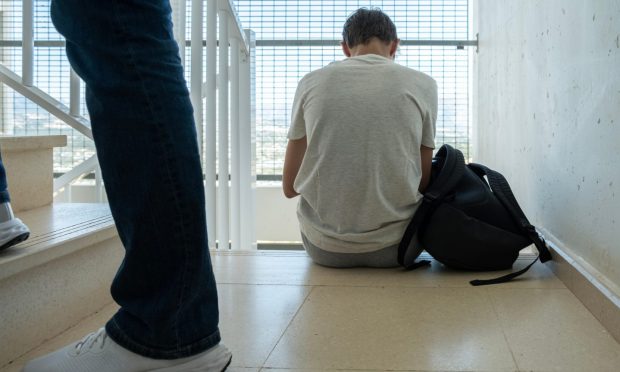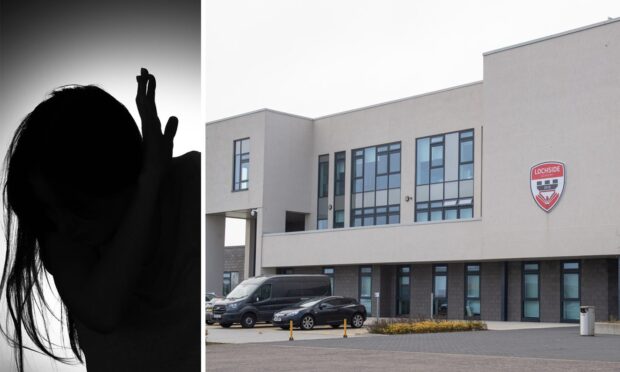When I close my eyes, I can hear him crying as though it only happened five minutes ago.
Clear as a bell, and just as disturbing; echoing to me from more than a decade ago.
He was a young boy, I guessed, weeping from the bottom of his heart. You know the sort of thing: uncontrollable sobs racking his body and coming so thick and fast that he was gasping for breath.
I was a volunteer telephone counsellor, helping young people desperate to escape nightmarish episodes in their lives. It was often bullying; a curse which paralyses children in school and elsewhere – and even follows adults into the workplace.
We volunteers weren’t just forced onto the public without warning. Oh, no – there was a lot of training and sweat-inducing role play to go through at first, often posing as a victim or counsellor under the watchful eyes of supervisors and peers.
As we stepped nervously into the reality of child abuse, we learned quickly that the first thing we had to do was win the confidence of frightened, wary children on the other end of the line.
Just to get them to hang on was an achievement in itself, like establishing a bridgehead in dangerous unknown territory. A safe platform to speak about their horrendous experiences. But not an easy challenge when someone was crying their eyes out.
I hadn’t heard sobbing like this since I was interviewed for the role a few months earlier. And, then, it was me doing the blubbing.
They touched a nerve by asking me to recall a bad experience from my own life which might be relevant to this work. The incident I chose had never been broached to complete strangers before and, as the tale unfolded, I was totally unprepared for my floodgates opening, too; what’s to say about middle-aged man sobbing, I ask you?
I thought, afterwards, that it was a masterstroke by my probing inquisitors to discover any reservoir of empathy in my soul for the children I would encounter. They got it in buckets.
I felt a miserable failure as I listened to tortured sobs flowing from the boy for several minutes with hardly a pause for breath. All my efforts to persuade him to speak failed, and he hung up without saying a word.
I was haunted by that call. What unspeakable abuses might have been happening to make him too frightened to talk?
Fear often stops bullying victims from speaking out, because they might not be taken seriously, or it might make the bullying 10 times worse.
‘Bullying culture’ is as common as ever
I read a P&J letter a while ago in which a child protection agency confirmed that bullying still took up much of their workload.
Inevitably, schools are challenged continuously over whether they are really doing enough to provide a safe environment and to root it out, or just paying lip service to the problem – by pretending they are tackling it. Inverurie Academy was the latest to face an allegation of a “bullying culture”, which senior staff said was being addressed.
Ironically, these days, it seems as if teachers themselves are just as much at risk from bullying pupils. This would point to abusive home lives for the worst offenders, and parents who have failed to instil an ounce of respect or tolerance in their offspring.
Research shows worrying numbers of children are still bullied. Depression, suicidal thoughts and even deaths have been linked to bullying
At nine, I was bullied for being half-Irish, after the head bully informed me that his dad “hated the Irish”.
Shocking parents must be held to account. But that doesn’t absolve teachers, as many deserve a “must try harder” school report.
Research shows worrying numbers of children are still bullied. Depression, suicidal thoughts and even deaths have been linked to bullying. If that’s the case, why isn’t it treated as seriously as Black Lives Matter or Me Too?
A major storyline in Coronation Street right now shows the risk to life when school bullying gets out of hand, so the producers should be applauded for that warning.
Curse which blights children’s lives is hiding in plain sight
There is a clear distinction between the salutary lessons we learn from the rough and tumble of growing up, and calculated cruelty which causes prolonged pain and humiliation.
In a few weeks, we will reach the first anniversary of a Press and Journal article which shone a light on the sorry state of school anti-bullying measures in Aberdeen. It revealed that they were shambolic, but we were assured by the city council that schools would “soon follow the sector-leading example” set by Aberdeen Grammar, which had a transparent policy of recording all complaints.
It is now essential that we find out how much progress the council has made in the intervening months since the P&J story.
This curse which blights children’s lives is hiding in plain sight, but many who should be tackling it always seem to be looking the other way.
David Knight is the long-serving former deputy editor of The Press and Journal





Conversation